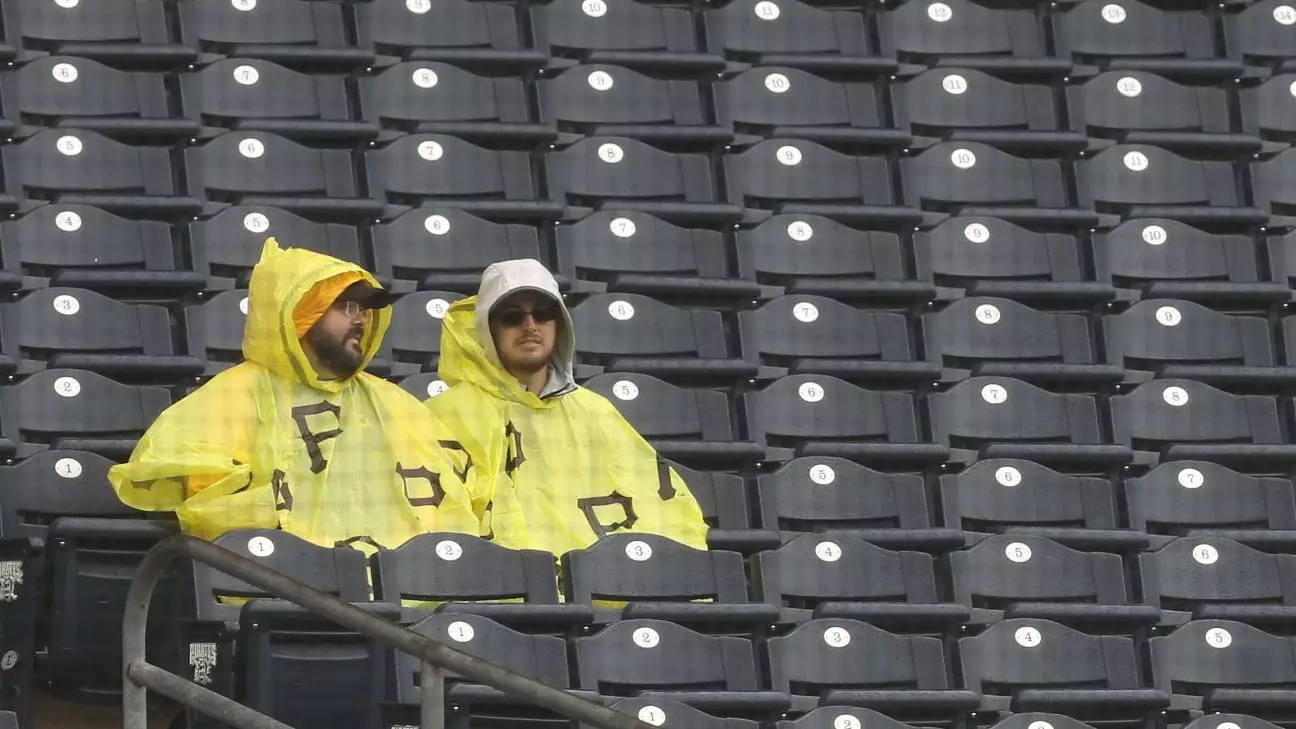The Pittsburgh Pirates’ organization has found itself in a precarious position, grappling with fan exasperation over management choices and on-field performance. During a recent Q&A session at the Pirates’ annual offseason fan fest, CEO Travis Williams faced the uncomfortable reality that many fans directed their frustrations toward team owner Bob Nutting. The outcry for Nutting to divest from the franchise was palpable as passionate fans chanted, “Sell the team!” This moment was not merely a casual expression of discontent; it was a culmination of years of disappointment and a desperate longing for improvement.
The backdrop of the Pirates’ current predicament is formulated by consistent underperformance. With Nutting at the helm since 2018, criticism has become a familiar soundtrack for the franchise. Fans have endured seasons characterized by losses and mediocrity, with the team finishing in the bottom echelons of the National League Central standings. The stark contrast between high expectations and disappointing results has undoubtedly eroded trust and patience among supporters.
Williams attempted to quell the mounting frustration during the fan fest, insisting that the organization’s commitment to winning is unwavering. He explicitly stated that Nutting has no intention of selling the team, emphasizing that the ownership remains deeply invested in the future of the franchise. “He cares about Pittsburgh; he cares about winning,” Williams asserted, attempting to resonate with the loyal fanbase that desires accountability. However, declarations alone don’t rid the organization of its historical baggage, and a persistent sense of skepticism among fans continues to linger.
This skepticism is not unfounded. The Pirates haven’t finished a season with a winning record since 2018 and have endured multiple last-place finishes over the past six years. The trail of disappointment extends further back, notably with only three postseason appearances since 1992. The lack of successful seasons creates a narrative that makes it difficult for even the most loyal fans to maintain optimism. Williams himself acknowledged the frustration in the air and indicated awareness of the expectations that supporters hold for a team that has struggled to rise above mediocrity.
Nevertheless, glimmers of hope emerged last season with the debut of Paul Skenes, the NL Rookie of the Year. At the trade deadline, the Pirates appeared to be on an upward trajectory with a record of 55-52. However, a subsequent collapse highlighted the fragility of their progress. A disheartening finish, marked by a 21-34 record in the final two months of the season, cast shadows over the earlier successes and illustrated the volatility of the team’s performance.
Williams, alongside General Manager Ben Cherington and Manager Derek Shelton, conveyed a sense of accountability. He noted, “That tough run in August took us out of the hunt for the wild card.” There lies an understanding within the organization that the aspirations for success require more than just high-profile player acquisitions; they necessitate a comprehensive approach encompassing player development, strategy, and systemic culture change.
As Williams navigated the difficult waters of fan sentiment, he implored the audience to channel their frustrations constructively. During a time of discontent, the emphasis on respectful engagement with the ownership should not be overlooked. Critiques aimed at management must correlate with a collective desire for the team to progress, rather than becoming a barrage of vitriol.
Engaging the fanbase in meaningful dialogue is crucial for the Pirates. Often, ownership can seem distant or disconnected from the experiences and emotions of those who cheer for the team. Instead of merely dismissing the chants calling for change, the organization must confront the underlying sentiments of those cries with empathy and strategic foresight.
Ultimately, the path forward for the Pittsburgh Pirates hinges on transparency, effective leadership, and a clear vision for improvement. The words of Travis Williams reflect a desire to connect with fans, but they must be backed up with tangible actions that yield results on the field. The looming question remains: Can the Pirates transform a cycle of frustration into a narrative of resilience and success? Only time will tell, but the foundation for change goes beyond ownership—it needs to resonate throughout the entire organization, inspiring fans and players alike.


Leave a Reply